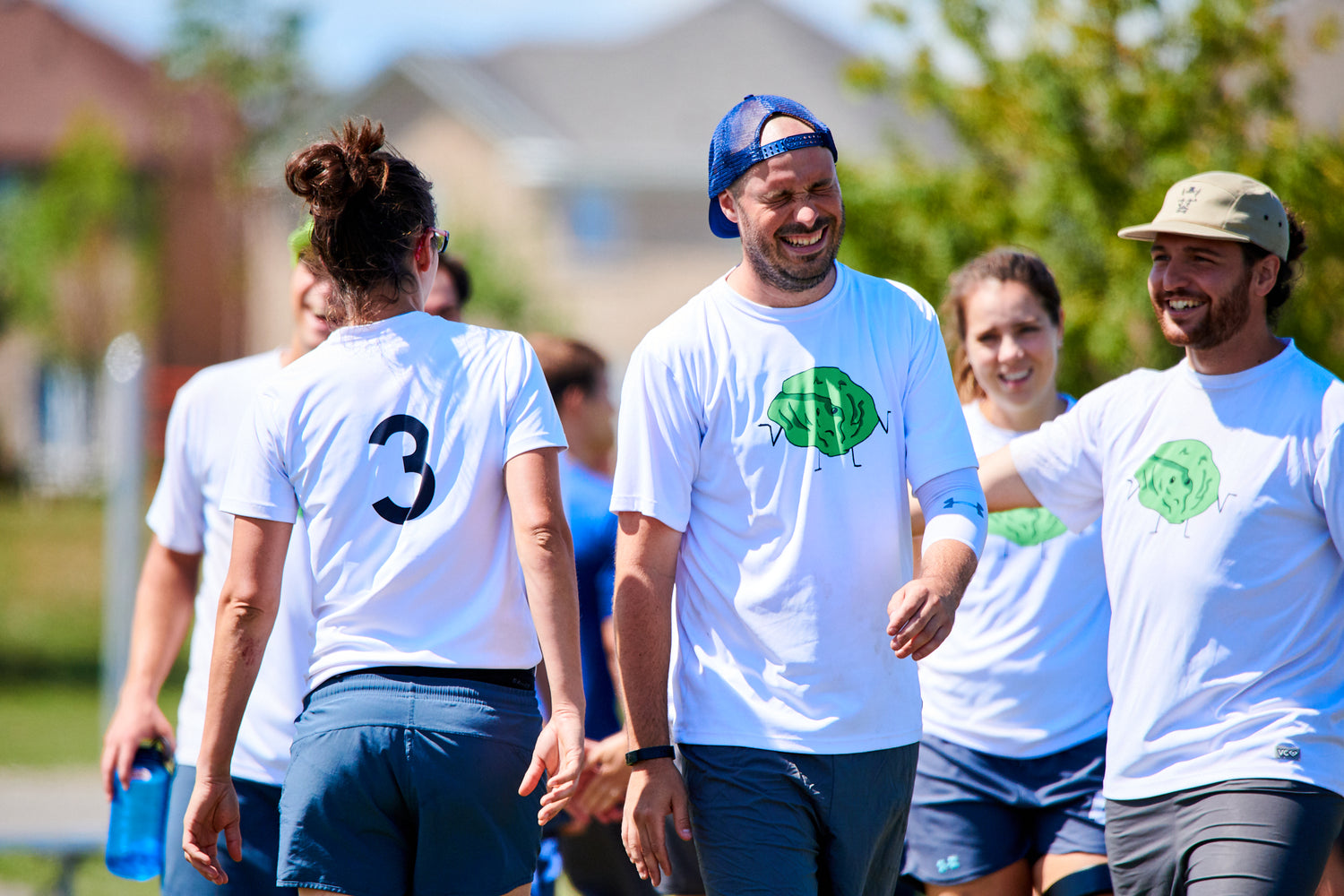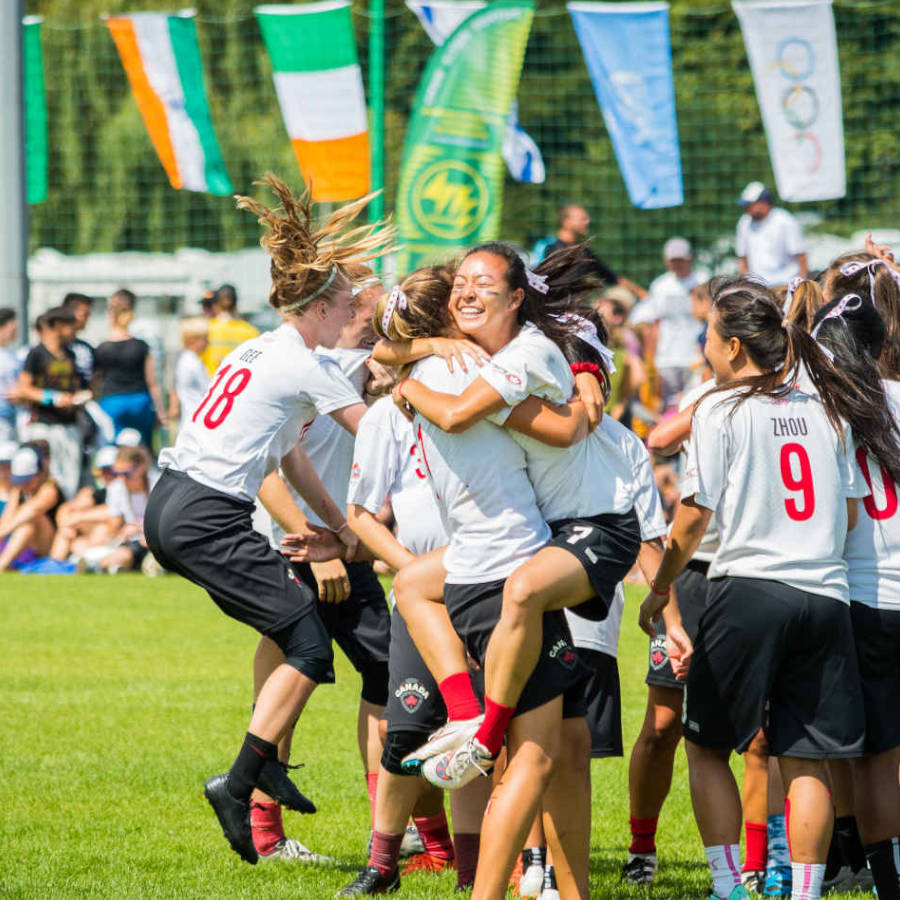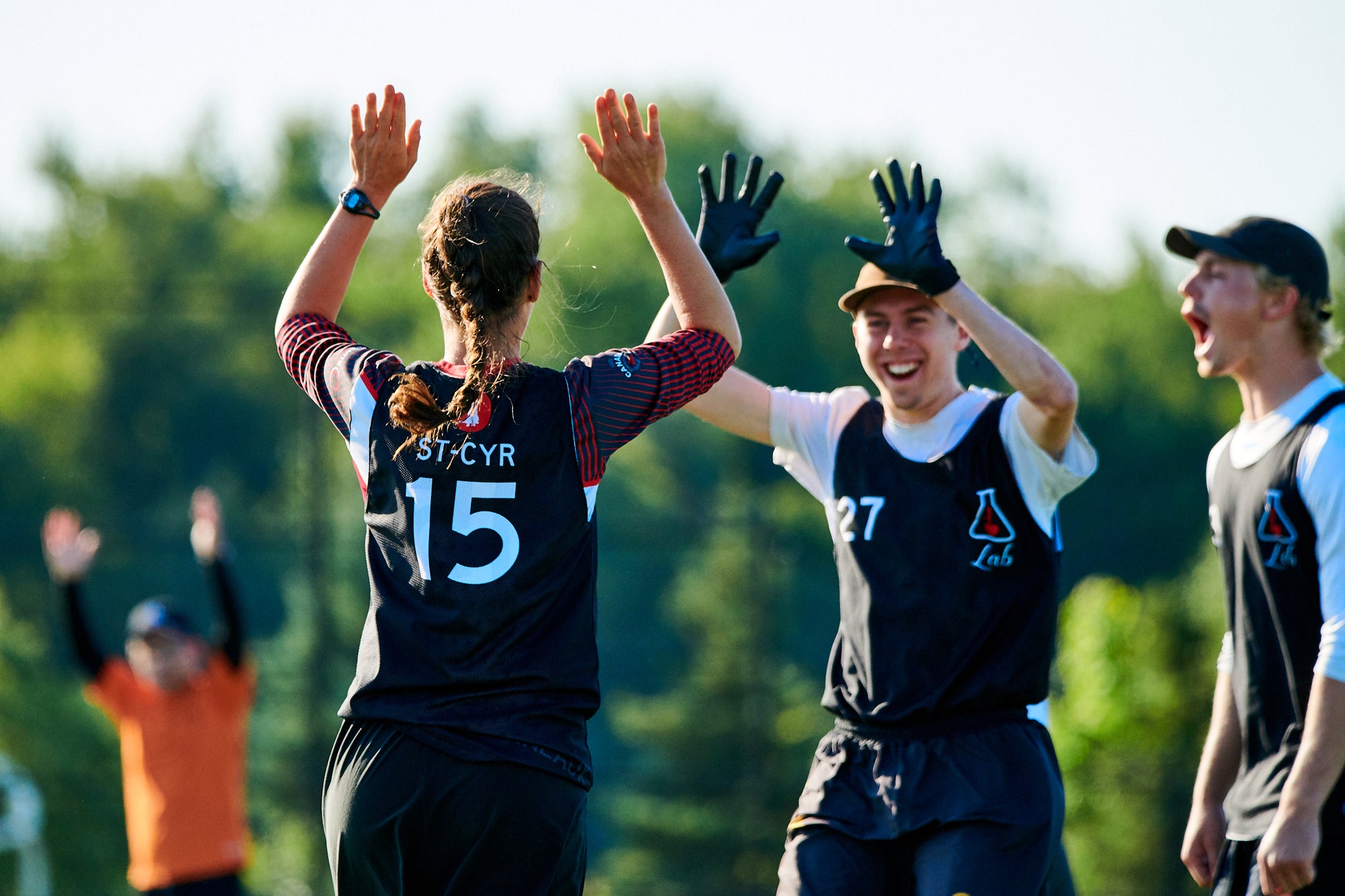
Resilience: 3 Steps to Let Go and Keep Your Focus in Games
Pour la version française, cliquez ici.
*****
During a game, in a moment of great stress or frustration, when faced with a problem that prevents you from concentrating, have you ever been told to let go? And if so, did you say to yourself "ok, but how do I do it?"
Very often, we are told that to perform in sport, we must learn to let go.
But what does it mean to let go? Is there anything we can do, specifically, to let go and stay focused? Does letting go simply mean relaxing, or breathing?
Ultimate players are people of action. For each problem, weakness or obstacle, we tend to work harder to overcome and conquer. This is why the concepts of relaxing, breathing, stopping, waiting, observing, taking a break... are not always easy to integrate!
A few months ago, I read the book The Inner Game of Tennis from W. Timothy Gallwey, in which I found something that helped me better understand the concept of letting go. I then discovered how to integrate it into my daily sports practice. Following this reading, I performed with much more consistency in games, my concentration was strengthened and I experienced the zone a few times at key moments.
Who Are You Talking to?
In his book, Gallwey asks the following question: when your thoughts get carried away and you start talking to yourself, who are you talking to?
Imagine that in your head there are two people interacting.
The one who is speaking. Gallwey calls it Self 1. It is the aspect of ourselves that thinks, anticipates, analyzes and wants to control.
The one who is listening. Gallwey calls it Self 2. It's the aspect of ourselves that performs automatically, without thinking.
To fully understand Gallwey’s image, it’s important to know that the brain is divided into three parts.

In your head, the person speaking - self 1 - is your forebrain. It’s the conscious portion of your brain that thinks, analyzes, judges and criticizes. And the person who doesn't speak - self 2 - is your hindbrain. It’s the unconscious part of your brain, where you access your muscle memory.
When you train your technique, you create habits. In your brain, a neural circuit is created, which becomes faster and more efficient over time. The technique trained and repeated hundreds of times then becomes automatic. You no longer have to think about it, the movement is written in your unconscious and your muscle memory.
It's like automatic save on your phone: you no longer have to remember your passwords to access your applications, the phone has stored them for you.
For example, when you throw a disc, your brain systematically records thousands of data: how fast you bend your elbow, at what angle you flex your wrist, when you let the disc go, the actions and synchronism of your joints, etc. All of this data is compiled and you can then access it more and more quickly, as you gain practice and experience.
It is impossible to consciously record all this data. We would be overloaded with information! The one who has the ability to coordinate, organize and synchronize all data is the hindbrain. Like a computer, it can process information almost instantly.
However, when you start to think about what you are doing and want to control all of your actions, you activate the forebrain - the area that is conscious. You then deactivate the hindbrain and slow down the data processing. It then affects your performance.
The Battle of the Ego
What happens when you start criticizing and giving yourself instructions?
Imagine you start your game, and you feel calm and in control. You know exactly what you need to do and you do it well. Of course, not everything is perfect, you have to adjust at times, but you stay focused and in the present moment.
Suddenly, one of your teammates starts talking to you:
"Raise your arm higher."
"Your throw should be more precise."
"You should have passed to another player."
"Jump higher."
"You are too slow, the others are faster than you."
“Why did you do that?”
When this happens, how do you feel?
These types of comments may affect your concentration and create tension. You might start to doubt, or focus only on your arm, or on your positioning.
When you talk to yourself in your head, the one who criticizes and gives you all these instructions is your ego. As soon as a challenge arises, for example you get broken on the mark, or you miss a throw, it may become stressed or frustrated, it may lose confidence and do everything it can to try to regain control. By doing this, your ego pushes you to focus on certain details that it believes are the most important.
Your ego is linked to your mind, which is linked to the forebrain.
When you criticize and give yourself instructions, the neural circuit is interrupted by your thoughts. In other words, you stop trusting your muscle memory to try to control certain details. To perform consistently in games, your ego-mind must let go and learn to trust your skills!
To keep your focus during the game, you want to build a new relationship between your ego and your muscle memory. You want to open new communication channels. Instead of constantly criticizing yourself, learn to develop your patience, so you give yourself time and space to empty your mind and access your muscle memory.
3 Steps to Let Go and Stay Focused in Games
Here are 3 steps to teach your ego to let go:
- Enter the Flow
When speaking, the ego comments, judges, and criticizes. To get in the flow, you can learn to practice non-judgment. Stop giving yourself dozens of instructions, stop commenting on each of your actions. Stay alert to what's going on, and focus more on your physical sensations.
- Breathe
Breathing has two purposes: first, it brings you back to the present moment. When you breathe, you can focus your attention in different places: pay attention to your belly that inflates and deflates, the air that enters your lungs, or the sound produced by the air traveling through your nostrils. You can also mentally count - up to 4 when breathing in, up to 8 when breathing out. The second purpose of breathing is allowing you to “get out of your head” to “get back into your body." When you think a lot, you are less in action. Paying attention to your physical sensations for a few seconds is a good way to regain control of your actions.
- Visualize
When the ego expresses itself, it judges the details, the technique and the result. Instead of focusing on these elements, focus your attention on the overall image and the feeling of your actions. For example, instead of focusing only on the position of your arm in your throw, visualize the flight path of the disc. Where do you want to send it? In what space? Which curve do you want to achieve? What angle, or what effect do you want to give? How fast will the disc travel? How will your movement feel - fluid, dynamic, powerful?
Create a clear visual image and then let your unconscious do whatever it takes to reach it. Focus on the big picture; not too many details. Just see and feel the end result. By visualizing the image, your brain will set up what needs to be done to achieve the result.
Letting Go
To let go is to learn to silence the ego - responsible for fear, frustration, and dissatisfaction - to leave more room for flow and instinct. It means to stop wanting to control everything when things do not go as planned, to focus on the present moment.
To let go is to move from thinking to action, no matter what has happened in the past.
Letting go also means realizing that adjustments do not always have to be planned consciously, and that the unconscious, thanks to its phenomenal capacity for analysis, has its role to play in performance.
Perhaps you have already experienced this situation: today, your team is not playing well. Your coach gives comments, adjustments, but nothing is working, and you keep underperforming. At some point, when the stress or frustration reaches its climax, a change occurs: the coach stops commenting, and the players calm down and become almost apathetic ... Then, suddenly, magic happens: you get a D, you score, and little by little, you regain the momentum.
What happened?
You and your team finally let go.
Talk to you soon,
Guylaine


